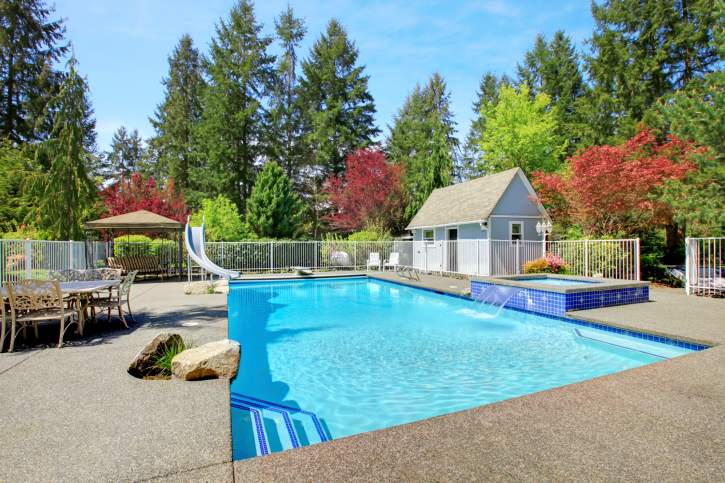
What Size Pool Pump Do I Need for Optimal Performance?
Share
When it comes to maintaining a sparkling and inviting pool, one of the most critical components is the pool pump. For tech professionals and enthusiasts, understanding the nuances of equipment like this can enhance efficiency and overall enjoyment. In this article, well cover the essentials of determining the appropriate size of your pool pump and the factors that influence this crucial decision.

Understanding Pool Pump Basics
Before diving into the specifics, it's crucial to grasp what a pool pump does. A pool pump circulates water through the pool filter, cleaning the water and preventing the accumulation of debris and algae. But how do you ensure that you have the right size? Lets break it down.
Why Pool Pump Size Matters
Choosing the right size of pool pump is significant for several reasons:
- Water Circulation: An appropriately sized pump ensures adequate flow rates for optimal circulation.
- Energy Efficiency: A too-large pump can lead to increased energy costs, while a small pump may not effectively clear your pool.
- Longevity: Proper sizing also contributes to the lifespan of your equipment.

Factors to Consider When Sizing a Pool Pump
When determining what size pool pump do I need, various factors come into play:
1. Pool Volume
The first and foremost consideration is the total volume of water in your pool, measured in gallons. You can calculate this depending on your pool's shape (rectangular, round, etc.). For example:
- For a rectangular pool: Volume (gallons) = Length x Width x Depth x 7.48
- For a round pool: Volume (gallons) = (Diameter / 2) x Depth x 3.14 x 7.48
A larger volume necessitates a more substantial pump to achieve an effective turnover rate.
2. Turnover Rate
The turnover rate is how long it takes for the pools total volume to pass through the pump and filter system, typically recommended to happen once every 8 hours. To calculate the required pump flow rate:
- Flow Rate (GPH) = Pool Volume (gallons) / Turnover Time (hours)
3. Head Pressure
Another technical aspect to consider is the head pressure, which refers to the resistance the pump must overcome in order to move water. This includes vertical lifts, pipe lengths, and the number of elbows or bends in the plumbing. The more resistance there is, the larger the pump you'll require. You can often find calculators online to help you assess your head pressure.

Choosing the Right Pump Type
Also, consider the type of pump best suited for your pool. The main types are:
- Single Speed Pumps: They run at a constant speed and are often less expensive but less energy-efficient.
- Multi-Speed Pumps: These allow you to adjust the speed, leading to energy savings and quieter operation.
- Variable Speed Pumps: The most efficient options, allowing for precise adjustment to flow rate and head pressure.

Conclusion: Making the Right Choice
Understanding what size pool pump do I need encompasses a range of factors from pool volume to pump type and head pressure. By analyzing these elements, you can ensure that your pool remains clean, inviting, and energy-efficient.
As a tech enthusiast, leveraging your knowledge of these specifications can empower you to make informed choices regarding your pool maintenance regimen.
Consider reading these related articles for deeper insights into pool maintenance and technology:
Pool Pump Lifespan | Water Bugs Solutions | Pool Value Addition
FAQs
1. What happens if my pool pump is too small?
If your pool pump is undersized, it may not circulate the water efficiently, leading to debris buildup and potential algae growth.
2. Can I use a pool pump that is too large?
A pump that is too large can cause excessive wear and tear on both the pump and the pool's filtration system, alongside higher energy costs.
3. How often should I run my pool pump?
It's generally recommended to run your pool pump for at least 8 hours a day to ensure adequate water circulation and cleaning.
As an Amazon Associate, I earn from qualifying purchases.
